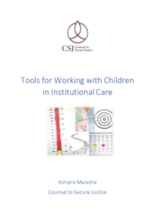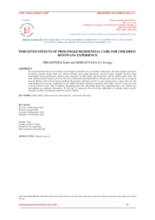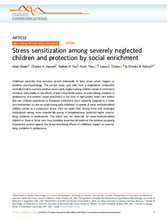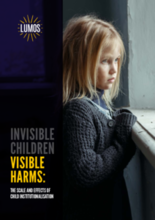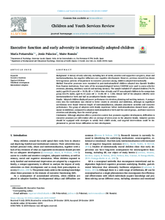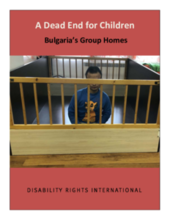Displaying 181 - 190 of 744
The current literature review provides a conceptual and empirical framework for understanding child institutional maltreatment.
This knowledge resource discusses and provides examples of practice tools and calming techniques (in English and Hindi) which counsellors and adults can use while working with children who are in institutional care. The paper reviews evidence on the impact of institutionalisation on children as well as evidence-based interventions that can help mitigate this impact.
This study determined the perceived effects of prolonged residential care for children in Botswana.
The current study uses data from a longitudinal randomized controlled trial to examine whether severe early neglect among children reared in institutions increases vulnerability to the effects of later stressful life events on externalizing problems in adolescence, and whether social enrichment in the form of high-quality foster care buffers this risk.
To investigate the early language development of children raised in institutional settings in the Russian Federation, the authors of this study compared a group of children in institutional care to their age‐matched peers raised in biological families, who have never been institutionalized using the Russian version of the CDI.
This article reviews the effects on children and youth of parent–child separation due to several of the most common reasons that are responsible for the growth in this family circumstance worldwide.
This is a summary of three major new papers published in the Lancet with the support of Lumos which shed new light on the situation of children living in institutions globally and make important recommendations for donors, governments, civil society and individuals to help ensure every child can grow up in a safe, supportive and loving family and have the best chance in life.
The main focus of this chapter is to define institutions, their objectives and the nature of services rendered.
In this study, executive functions were examined in post-institutionalized children adopted into Spanish families from Russian institutions.
The main finding of this report from Disability Rights International (DRI) is that Bulgaria has replaced a system of large, old orphanages with newer, smaller buildings that are still operating as institutions.


